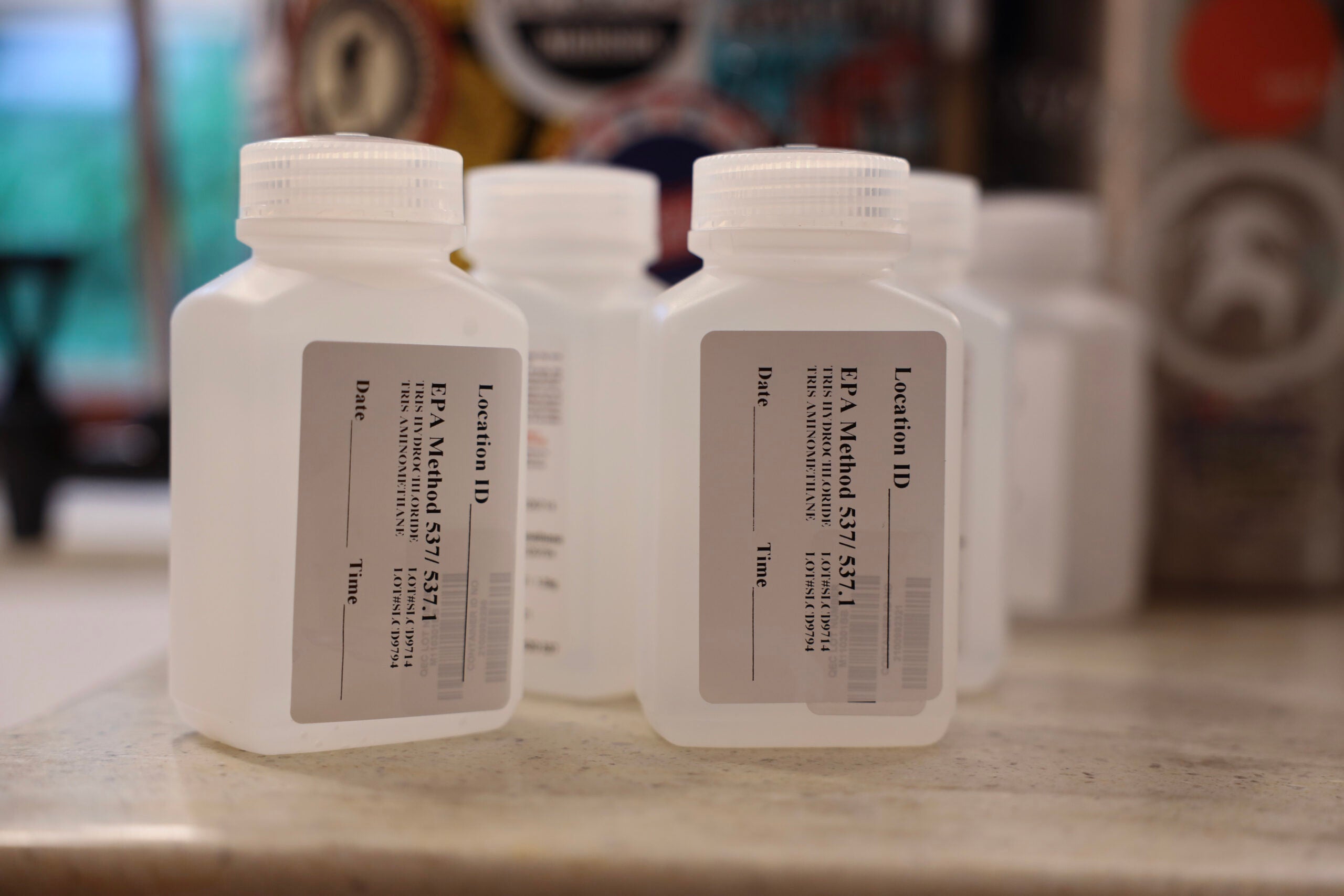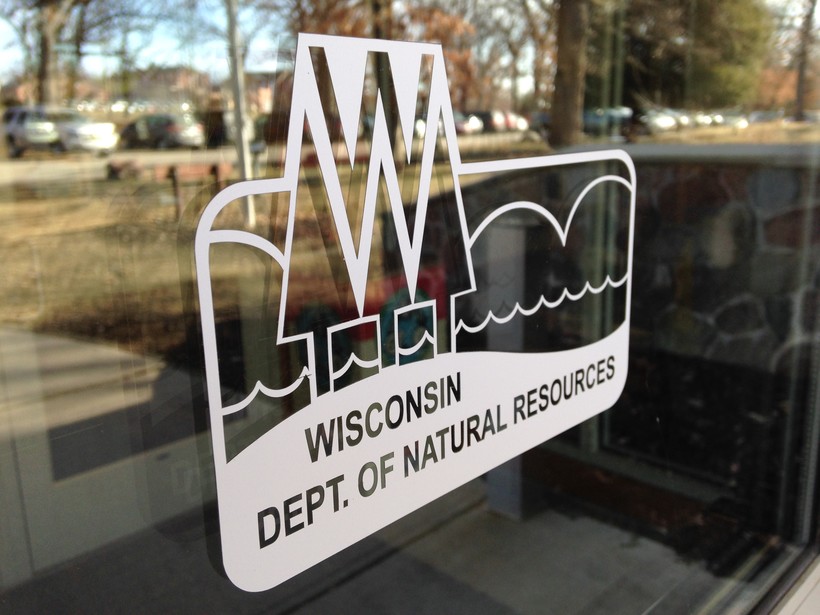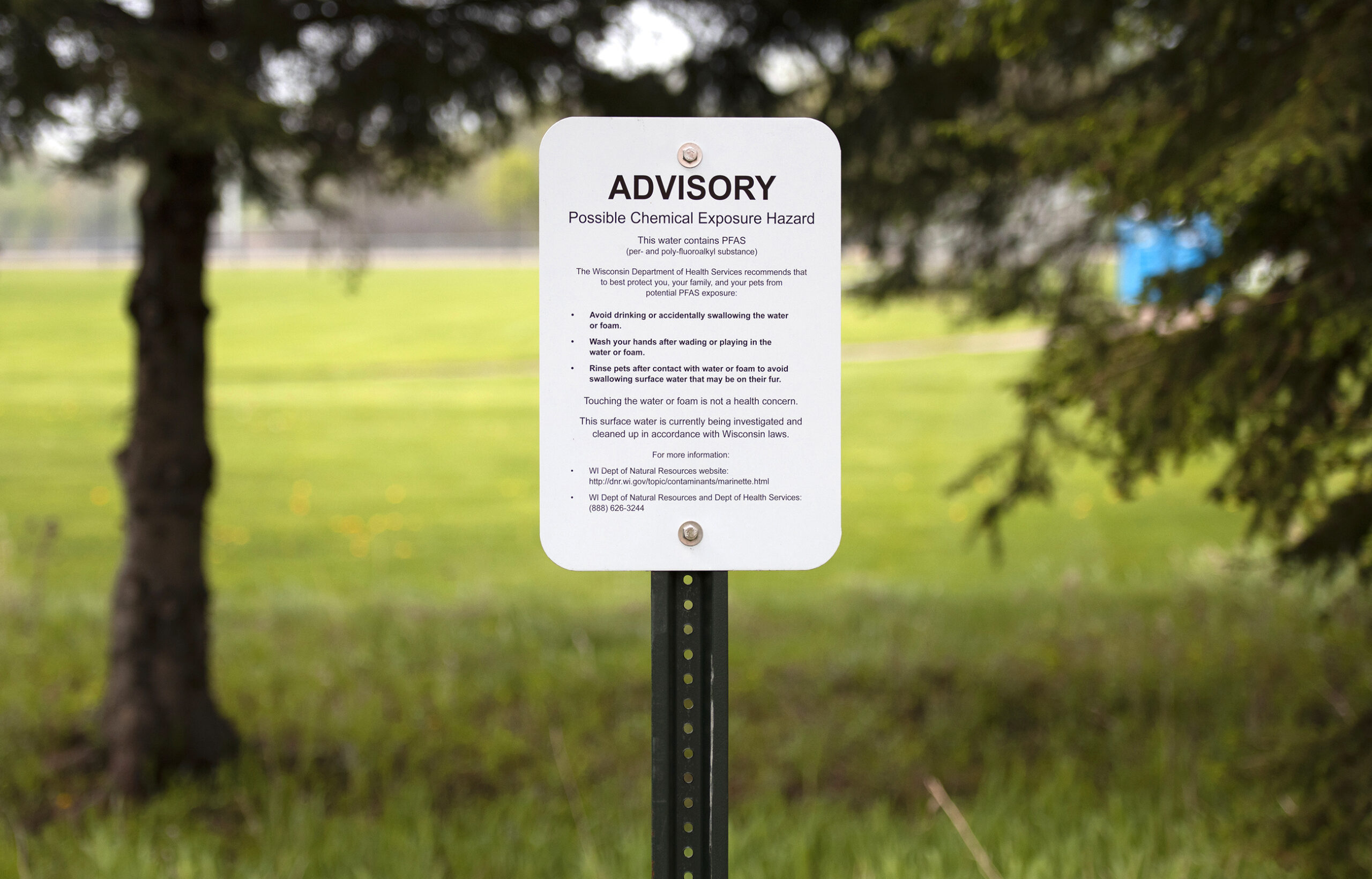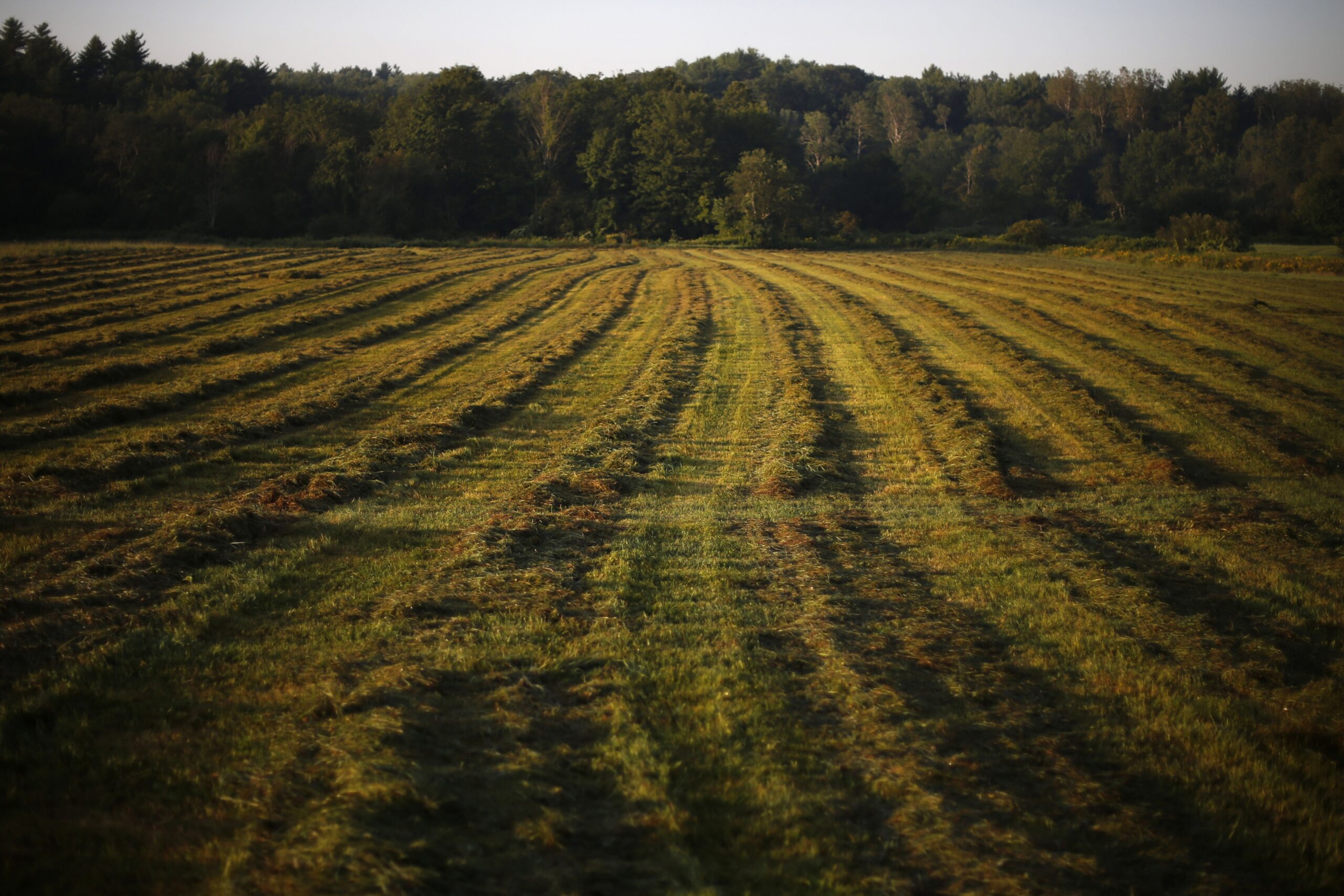Environmental, utility and industry groups showed both support and criticism for legislation addressing PFAS during a public hearing Monday.
The Republican-authored Senate Bill 312 would provide a variety of grants to help municipalities test for PFAS and pay for related infrastructure upgrades. But the bill would also limit the authority of the Wisconsin Department of Natural Resources to test for PFAS and require remediation.
Funding for the new grants would likely come from the $125 million approved by the Legislature’s budget committee last month.
News with a little more humanity
WPR’s “Wisconsin Today” newsletter keeps you connected to the state you love without feeling overwhelmed. No paywall. No agenda. No corporate filter.
Most of the speakers at the public hearing were supportive of legislative action to address PFAS contamination, which has been found in a growing number of communities statewide. PFAS, short for per- and polyfluoroalkyl substances, can be found in cookware, food wrappers and firefighting foam and don’t easily break down in the environment. Research shows high exposure to PFAS has been linked to kidney and testicular cancers, fertility issues, thyroid disease and reduced response to vaccines over time.
But each person who testified raised different issues with the way the bill was written.
Sara Walling, water and agriculture program director for environmental advocacy group Clean Wisconsin, expressed concern that the new restrictions would weaken strong environmental protections under the state’s Hazardous Substance Spill Law.
“We won’t make progress on this issue if for every step forward in the use of these proposed new grants, communities will move two steps back in adequately identifying contaminated properties, remediating those properties and if necessary, holding polluters accountable,” she said.
Rob Lee, staff attorney for Midwest Environmental Advocates, also cautioned lawmakers that the limitations could have unintended consequences in weakening the DNR’s existing authority to address contamination. He said it’s an important consideration, especially as the agency faces an increasing number of legal challenges.
“I think we’re at a time where we need greater clarity, however limited or broad that may be, and I do think that this first draft (of the bill) has the potential to make their authority less clear in certain instances,” Lee said. “What I’m really concerned about is how that lack of clarity might be leveraged to stretch the meaning of those limitations in the scope of them far beyond perhaps what you had in mind when drafting the bill.”
But Wisconsin Manufacturers & Commerce testified in favor of many of the restrictions and called for further limiting the DNR’s authority in some cases.
The business advocacy group called for cutting the six PFAS chemicals identified in the bill down to the two with federal standards, excluding any chemicals that have public health advisories or proposed standards that haven’t gone through a full state or federal rulemaking process. WMC supported the bill’s requirement for the DNR to get written permission from a landowner before doing water testing and called for expanding that requirement to whether the agency can publicly share the results of any tests.
Scott Manley, executive vice president of government relations for WMC, said he thinks lawmakers should be “very careful” about what authority the DNR has to require testing. He said the agency has not clearly defined their standards for PFAS remediation.
“So I think you need to weigh that when people are saying, ‘preserve DNR’s full authority,’” Manley said. “I think what your bill recognizes is that we want to focus the DNR’s limited resources to those instances where we know that there’s been a spill or we know that there has been uncontained PFAS.”
The League of Wisconsin Municipalities and the Municipal Environmental Group-Wastewater Division, which represents municipalities that own and operate treatment plants, both spoke against a provision in the bill that would prohibit a city or village from annexing territory that begins receiving water or sewer services because of a public health concern for at least three years. Both groups said the restriction would be a disincentive for municipalities to extend their services to those in need.
Matt Sweeney, public and external affairs director for the state’s Public Service Commission, also testified at Monday’s hearing. He said the bill’s requirement that the PSC authorize a separate rate class and higher rates for customers that have water service extended to them because of contamination goes against best practices.
“State law, when it comes to utilities and ratemaking, prohibits discrimination,” Sweeney said. “It’s possible that under the bill a higher rate for a class of customers that are largely similar to an existing class of customers could be considered discriminatory.”
He said raising service rates in a particular area could also discourage economic development in communities and create disparities.
Jim Zellmer, deputy administrator of DNR’s Environmental Management Division, testified at the hearing. He identified at least 12 recommended revisions of the legislation, most of which Zellmer said would keep the bill from conflicting with the DNR’s obligations under federal laws like the Clean Water Act and the state’s groundwater laws. Zellmer also said implementing all of the new programs would require more staff.
“The governor’s budget proposal included 11 (full-time) positions to implement a PFAS municipal grant program and manage the state’s response to PFAS contamination,” Zellmer said. “In order to implement the provisions of this bill, we would need an even greater investment from the Legislature to allow us to serve the people of Wisconsin.”
State Sen. Rob Cowles, R-Green Bay, who chairs the committee, said they can request funding for additional DNR staff later in the legislative process.
Leaders from two communities that have found widespread PFAS contamination also spoke at the hearing.
Lee Donahue, a member of the Town of Campbell’s Board of Supervisors, called on lawmakers to take further action to prohibit any use of PFAS in the state. She said her community and its partners have already spent nearly $1 million over the last two years in an effort to find a clean water source for residents with contaminated private wells.
Wausau Mayor Katie Rosenberg thanked lawmakers for putting the legislation forward. Her city found PFAS contamination in all six of the city’s municipal wells in 2022 and has invested in a filtration system to treat the community water.
“I’m hoping that any program you pass you would make eligible for municipalities like Wausau for reimbursements since we’re already on our way to fixing that problem, but the ratepayers are still looking for relief,” she said.
Rosenberg also called on lawmakers to change the bill’s language to award grants based on needs rather than distributing the funding in equal amounts.
Wisconsin Public Radio, © Copyright 2025, Board of Regents of the University of Wisconsin System and Wisconsin Educational Communications Board.







